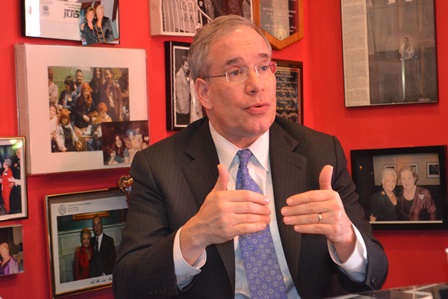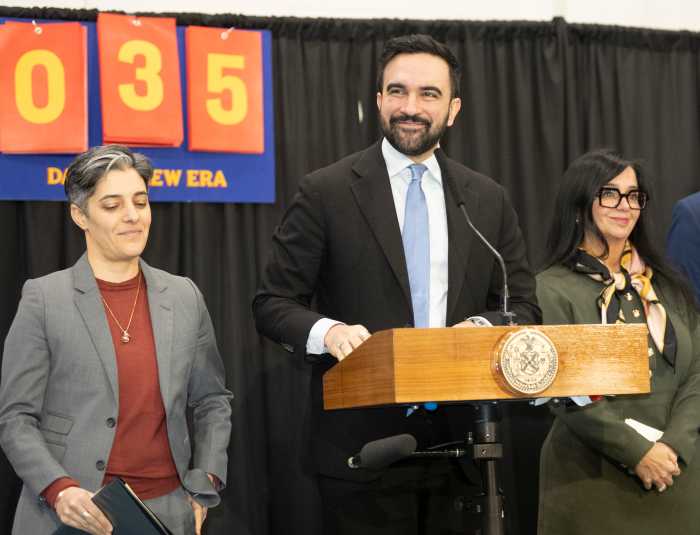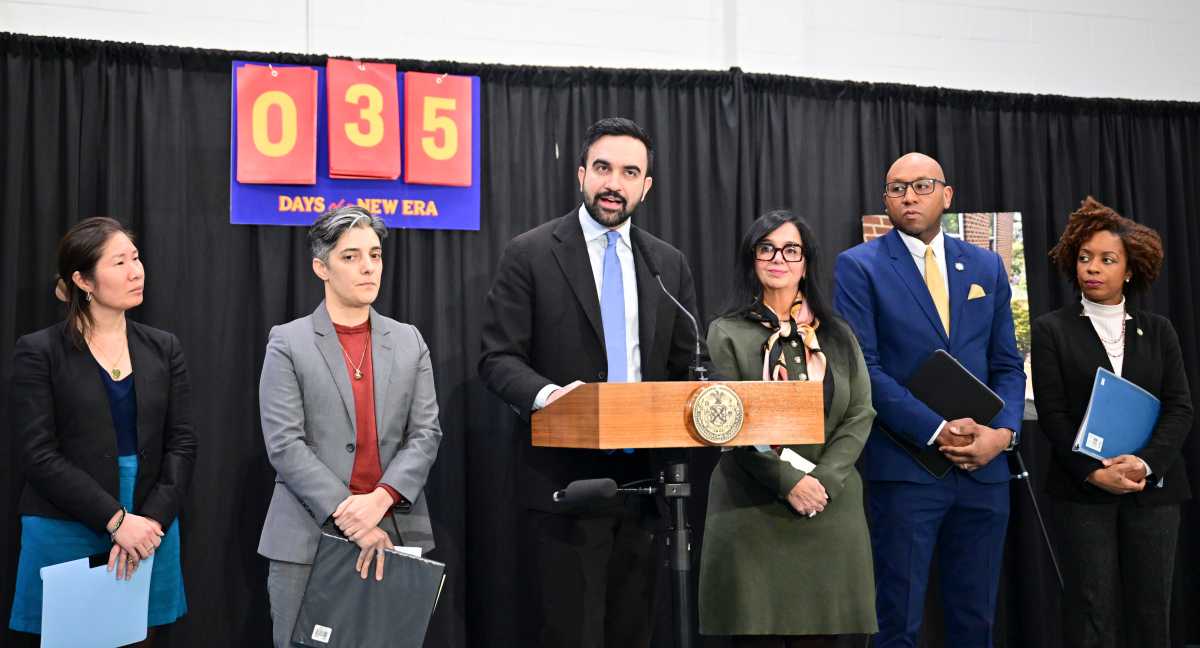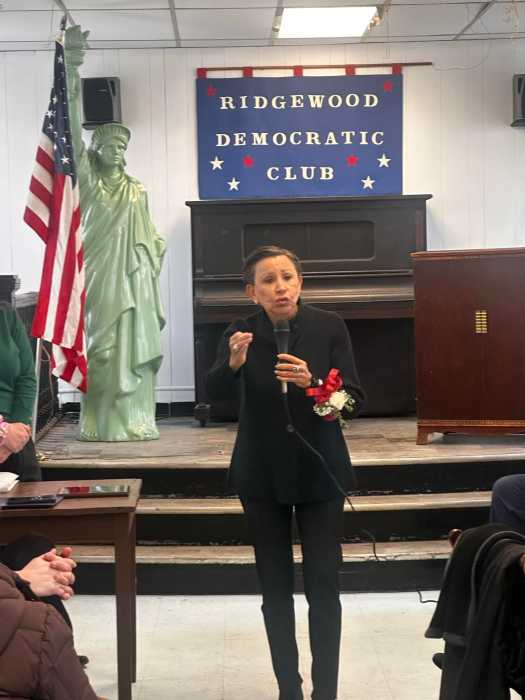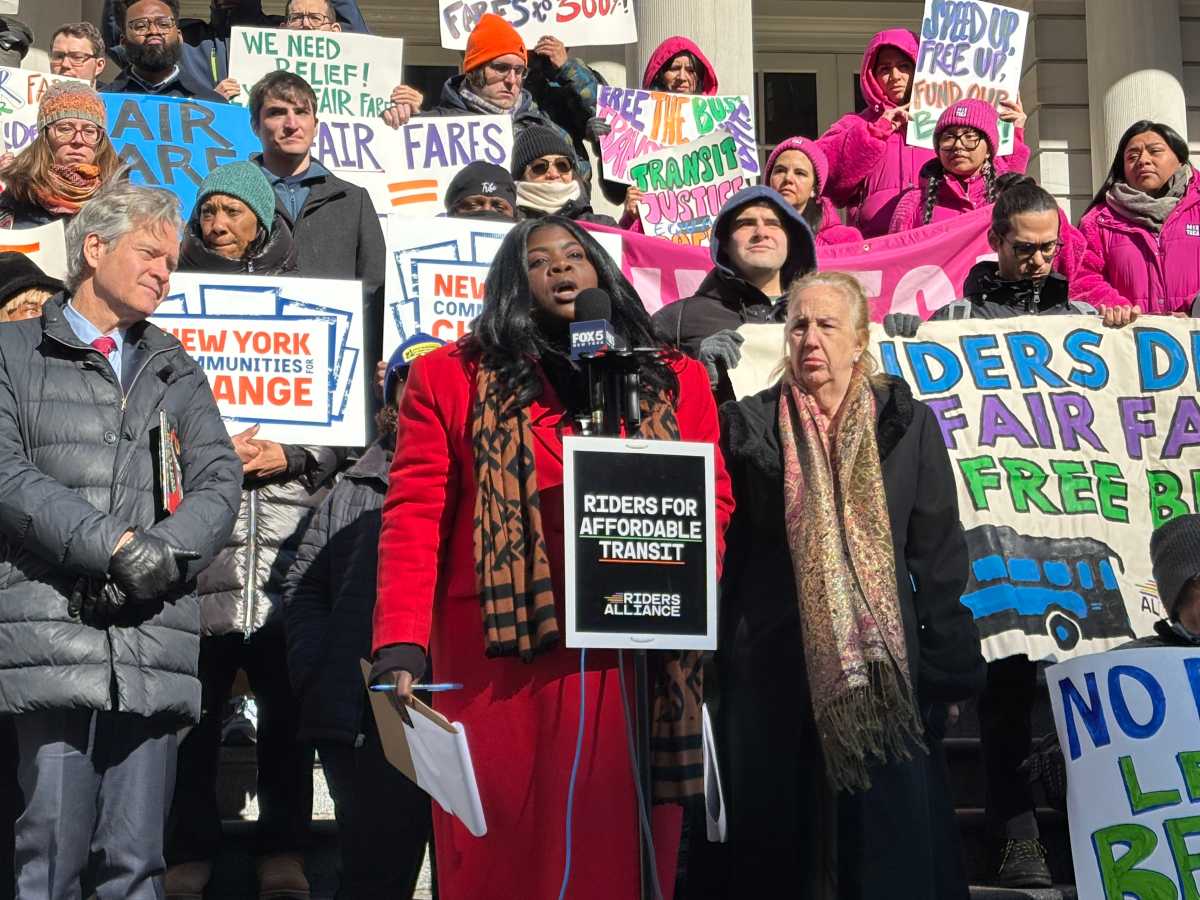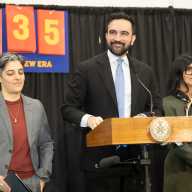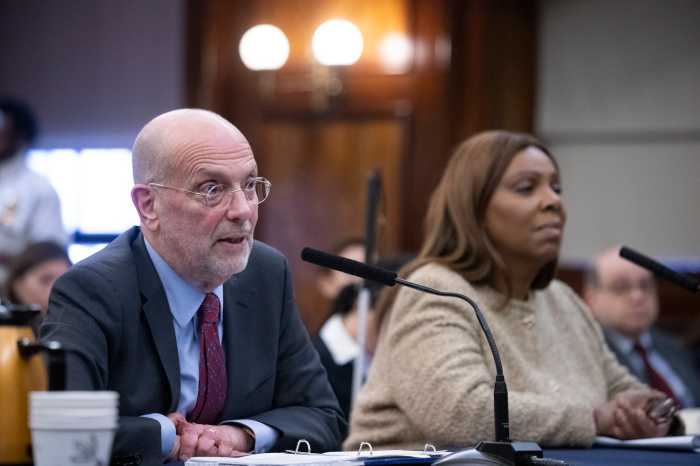City Comptroller Scott Stringer sat down with The Queens Courier to discuss his first weeks in office and just where he plans to go from here.
“We hit the ground running,” he said. “It’s getting out and listening to what people say. If you want to do audits and identify people and agencies, you talk to people in the streets and get a very good idea.”
Stringer oversees the city’s $150 billion pension fund and also registers an average of 22,000 city contracts from every business concerning technology, to day care, to public housing.
For the start of his term, he has already audited public housing as well as the three separate public library systems.
He is a supporter of raising the minimum wage to $11 to accommodate the city’s price of living, and also an advocate for establishing a guaranteed revenue stream for universal pre-kindergarten. He believes in advancing public schools, namely in technology, to give students a fighting chance at a successful future.
Stringer has also made some changes internally intended to improve the efficacy of the comptroller’s office. He has proposed to ban placement agents, the “middle men” who have been involved in various past scandals, and brought in risk management professionals.
“I can’t audit an agency unless my own house is in order,” he said.
With The Courier, Stringer covered borough-centric topics and expanded on how he plans to keep Queens, and the whole city, afloat financially.
“Nobody knows this city better than me,” he said.
What is your political background?
“Well, I haven’t told anyone this, but the first thing I wanted to be was a pro quarterback with the New York Jets. Then I realized early on by the age of 12, I was a little washed up,” Stringer said.
Stringer’s family had a foot in the political door when his mother ran for City Council. Growing up in Washington Heights, he thought “everyone was involved in government or politics.”
“I’m doing exactly what I always wanted to do,” he said. “The job of comptroller has never been more important [than] with this new government. I have the opportunity to work on issues I really care about.”
Stinger said the city’s economic issues are “really about civil rights and about moving everybody to where they have to be.”
“The challenge we face in the city [is] how do we bring everybody along economically,” he said.
The MTA has suspended No. 7-train service from Long Island City to Flushing for 22 weekends. What economic impact for local businesses do you foresee?
“When you have a large transportation project that in the long run will modernize the system, that’s something that’s goal-worthy,” Stringer said. “But when you don’t plan the reconstruction with the community, when you don’t partner with the businesses, you end up sacrificing people.”
“You’re sacrificing people in the name of progress, you can’t do it that way,” he said.
As comptroller, Stringer said he can “follow the money,” and make sure it is “being spent wisely.”
Additionally, he wants to “elevate this office so New Yorkers know when they want to bring an issue to my attention, they know what this office can do and what we’re going to do.”
The city Build it Back program for Sandy victims has tested the patience of many residents still trying to rebuild. How do you plan on monitoring those funds, as well as the $15 billion the city is set to receive in federal recovery funding?
During Stringer’s campaign, he proposed creating a Sandy Audit Bureau, designed specifically to watch every dollar designated for storm recovery. He has followed through and said he and the bureau will look at contractors and will be “laser focused” in making sure the money goes where it should.
“Where we find corruption or misuse of money, I want to make it very clear to everyone we will make referrals to law enforcement agencies based on our findings,” Stringer said. “The worst that can happen is you get hit by two hurricanes, because somebody took money or didn’t do the work they said they were going to.”
The comptroller is also working with Councilmember Donovan Richards and others involved with the Sandy Tracker, an online database monitoring recovery money coming in and out of the city.
He also said the administration should extend the deadline for Build it Back so more people can gain access to the recovery assistance program.
RECOMMENDED STORIES

